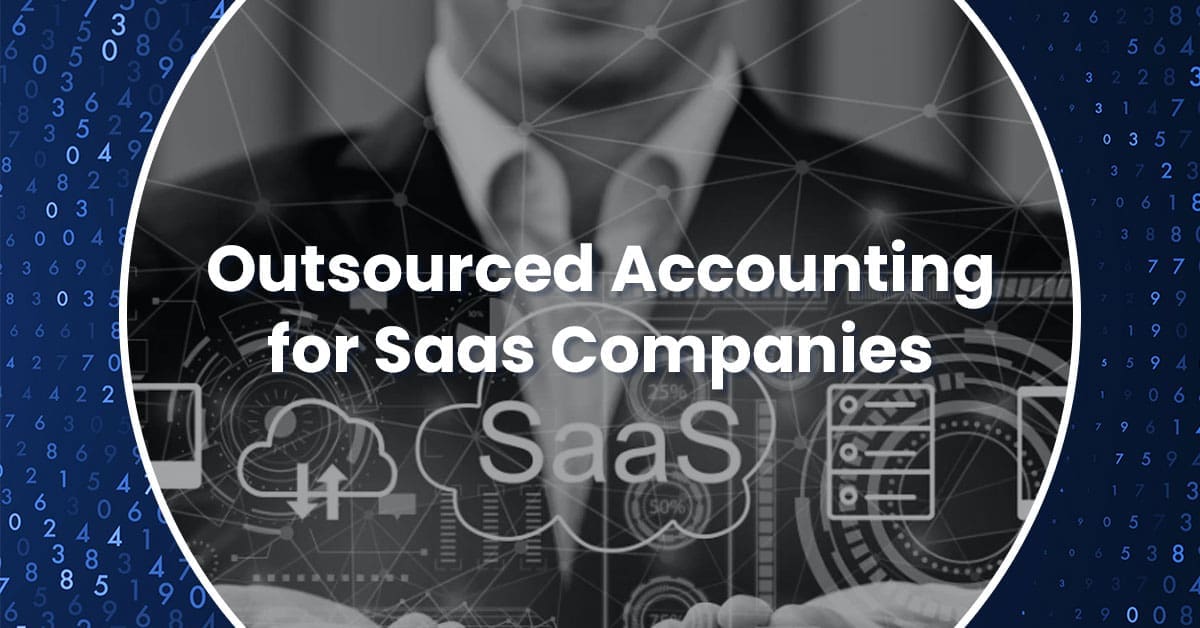Nearly 9 out of 10 startups fail, and poor financial management is often a key reason. From missed tax deadlines to inaccurate cash flow reporting, early-stage companies can’t afford accounting errors.
That’s why many founders turn to outsourced accounting for startups, a scalable alternative to hiring an in-house finance team. These services handle bookkeeping, payroll, reporting, and compliance with greater accuracy and lower overhead.
Still, not all providers are built for startup needs. Choosing the right partner early on builds investor trust, protects your runway, and supports long-term growth.
What is Outsourced Accounting for Startups?
Outsourced accounting for startups means working with an external firm to handle essential financial tasks instead of building an in-house team. This approach gives startups access to skilled professionals who manage everything from daily transactions to financial strategy.
Core accounting outsourcing services for startups typically include bookkeeping, payroll, financial reporting, budgeting, and cash flow planning. Many providers also offer fractional CFO support to help with forecasting and investor reporting.
For early-stage companies, outsourcing creates a reliable financial foundation that scales with the business.
Top Benefits for Founders Who Outsource Early
Outsourcing accounting early on isn’t just about saving money. It’s about building a smarter financial foundation that supports growth, improves investor confidence, and allows founders to focus on scaling the business. Here are the top reasons startups choose this model:
1. Time savings
Early-stage founders already wear too many hats. Managing books, chasing payments, or manually running payroll takes away from product development and customer growth. With outsourced accounting, day-to-day financial tasks are handled consistently and accurately. This frees up valuable hours each week and removes the burden of hiring and training finance staff.
2. Access to expert teams
Startups typically can’t afford a senior controller or a seasoned CPA. Outsourcing solves that by giving you access to highly qualified professionals with deep experience across industries and growth stages. The best outsourced CPA for startup environments brings not only technical accuracy but also advisory insight that helps you make better decisions early on.
3. Real-time reporting and insights
Modern outsourced firms use cloud-based platforms to give founders live access to dashboards, metrics, and monthly reports. This level of transparency helps you understand your cash position, forecast upcoming expenses, and identify when to cut or scale spending. Instead of waiting until tax time, you stay informed all year round.
4. Easier funding preparation
Whether you’re raising a seed round or preparing for Series A, investors expect clean, organized, and GAAP-compliant financials. Outsourced accounting firms help keep your books audit-ready, prepare financial models, and generate the kind of reporting venture capitalists want to see. This can speed up your raise and improve your chances of landing a term sheet.
5. Flexible and scalable support
As your company evolves, your financial needs will change. With the right partner, services can scale with you by adding payroll, budgeting, forecasting, or even fractional CFO support when needed. You avoid overcommitting on in-house headcount and only pay for the services you actually use.
Wiss offers startup-first outsourced solutions designed to evolve with your business from pre-revenue through growth and beyond.
5 Questions to Ask Before Choosing a Provider
Not all accounting partners are built for the pace and pressure of startup life. Asking the right questions up front helps you avoid costly mistakes and choose a firm that actually supports your growth.
1. Do they have startup-specific experience?
Outsourced accounting for startups is not the same as accounting for established businesses. Ask whether the firm understands founder challenges, funding cycles, and early-stage priorities like burn rate, runway, and investor reporting.
2. Can they scale with your funding stage?
You may start with bookkeeping, but later need forecasting, cash flow modeling, and tax strategy. Choose a provider that can expand services as you grow, so you’re not forced to switch firms in the middle of a raise or exit.
3. Do they offer CFO-level advisory?
Startups often need guidance beyond basic compliance. Look for firms that provide access to fractional CFOs or strategic advisors who can help with board reporting, financial modeling, and capital planning.
4. Are they tech-enabled?
Modern accounting firms should offer cloud-based tools, secure document sharing, automated workflows, and real-time dashboards. This gives you 24/7 access to your numbers and avoids delays or surprises.
5. Is their pricing model transparent and flexible?
Founders need predictable costs and the ability to scale services up or down. Ask for clear pricing structures, service breakdowns, and contract terms before committing.
Wiss combines startup-specific expertise with modern tools and flexible support. Our team integrates technology with strategic advisory to give you complete financial visibility.
Learn more about our Technology and Process Solutions.
What to Expect: Key Services Offered by a Good Firm
When evaluating outsourced accounting for startups, it’s important to know exactly what services a strong provider should deliver. A reliable partner does more than just handle data entry. They help you stay compliant, make informed decisions, and set a financial structure that supports growth.
Here are the key services every startup should expect:
Bookkeeping and reconciliation
This includes tracking every transaction, keeping your general ledger organized, and reconciling your accounts to ensure everything matches. Without this foundation, your reports and cash flow forecasts can’t be trusted.
Monthly close and financial reporting
A quality firm will close your books each month and deliver standard financial statements such as your income statement, balance sheet, and cash flow report. These updates help you monitor performance, spending, and profitability in real time.
Payroll, accounts receivable and payable, and compliance
Managing payroll, sending invoices, and paying bills can eat into valuable time. A trusted partner ensures these tasks are completed accurately and on time. This also includes meeting all tax and regulatory deadlines to avoid fines or surprises.
Financial planning and forecasting
Outsourced teams often support budgeting, forecasting, and cash flow modeling. These tools help you understand how long your runway will last, when to raise capital, or how to shift spending if revenue changes.
Red Flags: When to Walk Away
Not every accounting firm is built to support the fast pace and shifting needs of a startup. While many promise low costs and automated tools, there are warning signs that can signal a poor fit.
Here are some red flags to watch for before committing:
Limited service scope
If a firm only offers basic bookkeeping and ignores financial forecasting, you’re missing a major part of what drives smart decision-making. Startups need forward-looking support, not just historical data.
No visibility into metrics
You should never have to wait days to understand your financial position. Lack of dashboards, monthly reports, or on-demand data access is a serious issue.
Generic pricing without clarity
Startups need flexible pricing and room to scale. Avoid firms that push rigid service tiers with unclear deliverables or hidden costs.
No access to real advisors
If your only point of contact is an app or a shared inbox, you’re missing the chance to work with people who understand your business. Human advisory is key for early-stage strategy and investor prep.
Choosing the wrong partner can slow you down when speed matters most.
Not all providers are built for startups. Wiss is.
FAQs
How much does it cost to outsource an accountant?
Costs vary based on services, company size, and complexity. Basic bookkeeping may start around $500 per month, while full-service outsourced accounting can range from $1,500 to $5,000 or more. Firms offering CFO-level support may charge higher rates but deliver greater strategic value.
Is a CPA worth it for a small business?
Yes. A CPA brings experience, accuracy, and tax knowledge that go beyond general bookkeeping. They help ensure compliance, reduce costly errors, and can support financial planning and audit readiness. For startups, a CPA can also assist with investor reports and funding prep.
How much should a small business pay for a CPA?
Hourly rates for CPAs typically range from $150 to $1000, depending on their expertise and the scope of work. Some firms offer fixed monthly packages, which can make budgeting easier. For startups, bundled services through outsourced firms often provide better value than hourly billing.
Trusted Firms Enable Startup Success
Startups move fast, and your accounting team needs to keep pace. The right outsourced accounting partner does more than manage the books; they help you stay investor-ready, make smarter financial decisions, and scale with confidence.
Wiss has deep experience working with startups at every stage. From early bookkeeping to fractional CFO support and forecasting, our team delivers the financial clarity and structure founders need to grow. Every plan is built around your business, your goals, and your timeline.
Need startup accounting you can trust? Contact Wiss today.





 Previous
Previous





